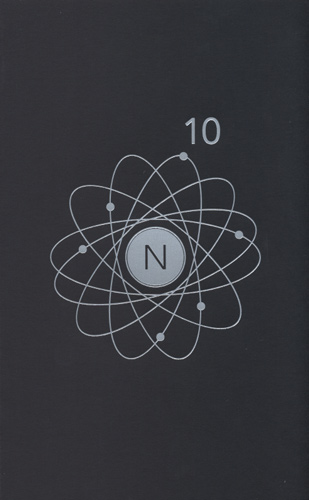Nano Fiction – Fall 2016
Having read the Fall 2016 issue of Nano Fiction, I am sorry to see that this will be their last issue. After ten years, the editors of this publication have chosen to end their journey in the world of underappreciated forms. This issue is a beautiful, final foray into the world of flash fiction, sharing works from both published and unpublished authors, as well as several articles on the “State of Flash.”
Having read the Fall 2016 issue of Nano Fiction, I am sorry to see that this will be their last issue. After ten years, the editors of this publication have chosen to end their journey in the world of underappreciated forms. This issue is a beautiful, final foray into the world of flash fiction, sharing works from both published and unpublished authors, as well as several articles on the “State of Flash.”
One of these works is the winner of the 2016 Nano Prize, “Medusa” by Charles Rafferty. Here, the author gives us insight into the mind of Medusa after the snakes started to appear on her head. She struggles at first to comprehend what is happening, and then to control it. As she says, “Even the imperfect image of my face in a quick-running stream is enough to stiffen my joints.” Rather than grow to fear her condition, she finds strength, and some wickedness, in it. However, she makes a decision: “There is another path and I am on it. No man dares mishandle me.” She takes her ugliness as strength and runs with it.
Another piece I found intriguing was “In Our Circle” by Kimberly King Parsons. It is told from the perspective of a “bloody-minded” patient who struggles to cope with anger. The patient recalls the art shrink saying that they should “Allow these distractions to deepen your concentration,” but the patient is not sure what she means by this. “When they let me out I was just as mad as when I went in, only fatter and too lazy to exercise my wrath,” the patient reflects. I love how this story reminded me that we should “leave space for luminous moments” in our lives, no matter who we are, even if we are “monsters.”
I was intrigued by Kathleen Heil’s “Nightlight Recon,” which shares a bittersweet memory of children catching fireflies that they trap in jars. Each summer, the brothers catch fireflies together and make nightlights out of them, and “in the morning, the jar would always be gone before you woke, your father explaining that the bugs had been sent out on another mission.” However, one of the brothers wakes in the middle of the night, and looks over to see “the bugs defeated, limp, barely flickering against the darkness.” The children didn’t consider that these beautiful bugs were not going to survive the night in a jar. As children, we often don’t think about how our actions have consequences; only through the lens of an adult mind do we realize our effect on the world. It is a powerful lesson I hope to remember for a long time.
Beyond the flash fiction stories, this issue also contains several essays that discuss the State of Flash. In “Letting Students Not Like Flash,” by Dennis James Sweeney, the author shares the reasoning behind his students reading AM/PM by Amelia Gray in his Intro to Fiction Writing class. He hopes that at least one student dislikes it every course, explaining how some students will dislike the book after just learning the characteristics of a standard story format. AM/PM breaks many of the traditional rules of fiction. The instructor then turns this dislike into a teaching moment, where students can realize that breaking the rules of fiction does not mean the story is bad. It simply means that it breaks the “norms” and finds a voice in a new, non-traditional manner.
Just as the book AM/PM pushed the boundaries of fiction by definition, Nano Fiction provided a place in the literary world for stories that also pushed boundaries. I am sad to see that there will be no more issues of this publication. However, as the editors shared, there is now a place carved out in the literary world, so flash fiction can still find its voice.
[www.nanofiction.org]





